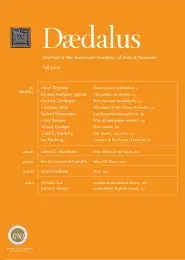From identity to solidarity
Just who belongs together with whom, and for what purposes, and on what authority? Where and why do the claims of descent, religion, nationality, economic position, ideology, gender, and ‘civilization’ trump one another in the competition for the loyalties of individuals in an epoch of increased global integration? How much do we owe to ‘our own kind’–whatever that may mean– and how much to ‘strangers,’ to the rest of humankind? Our most discerning social observers often conclude that “the boundaries of responsibility are increasingly contested.”1
The problem of solidarity is shaping up as the problem of the twenty-first century. Yet the centrality of this problem to our time, and to our apparent future, is often obscured by the popularity of the term identity.2 This word sounds like a reference to a stable, if not static, condition, largely cultural and psychological, but the word as commonly used in the United States during the past several decades has actually functioned to assign political and social roles to individuals and to flag expectations about just who will make common cause with whom. To share an identity with other people is to feel in solidarity with them: we owe them something special, and we believe we can count on them in ways that we cannot count on the rest of the population. To come to grips with one’s true identity is to ground, on a presumptively primordial basis, vital connections to other people beyond the family.
. . .
